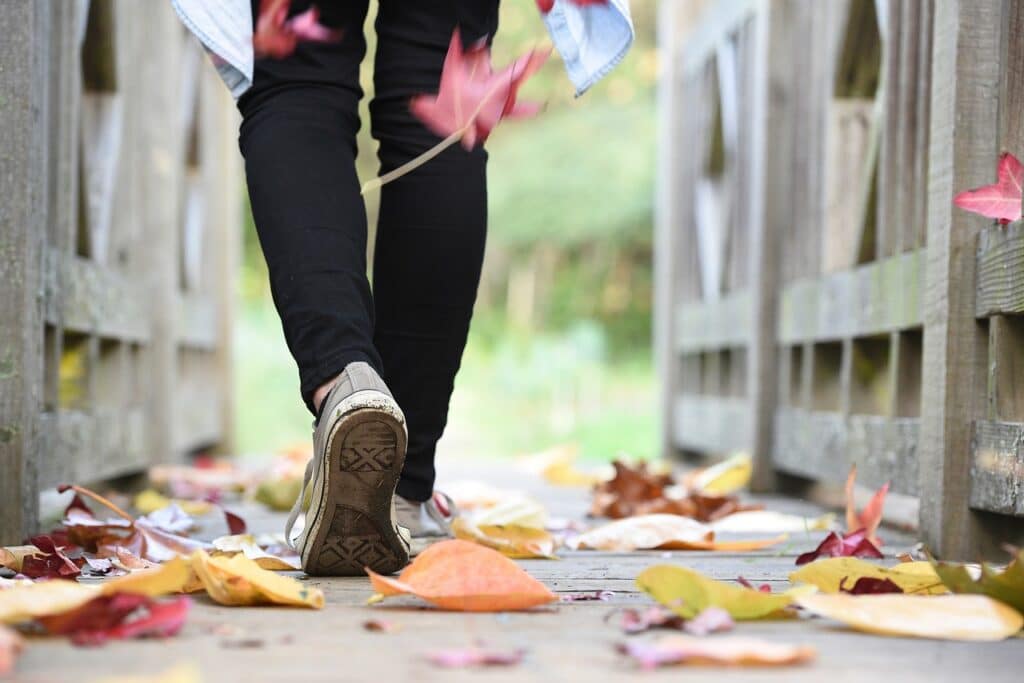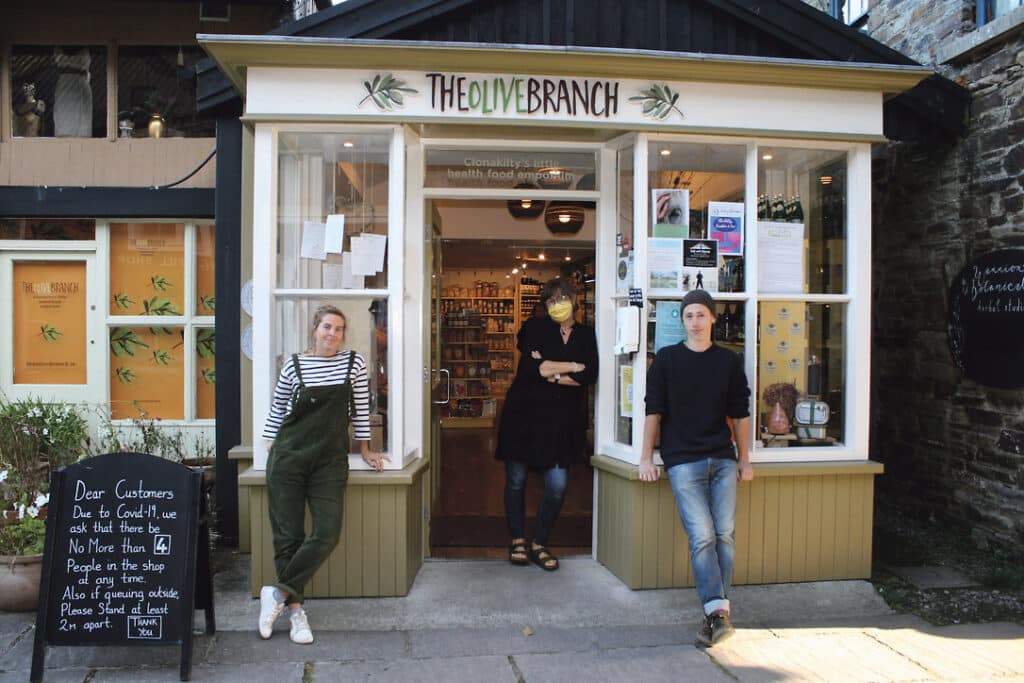
As the season has truly turned, and the evenings are drawing in, we need to mind ourselves in an intentional, purposeful way, particularly during these challenging days. One way of improving our mental wellbeing is through mindfulness meditation. This helps us to pay attention to the present moment and to stay with the here and now. Mindfulness heightens awareness of our thoughts, feelings and sensations in the body. We can feel more connected to the world surrounding us and step out of deeply engrained patterns of overthinking, either living in the past or predicting what may happen in the future. This autumn is different to most, as nobody really knows what the season will bring, but we can make a choice to turn towards it with purpose and intention.
We can also turn towards ourselves and how we are feeling. It is ok to feel a level of anxiety during a pandemic. Anxiety is a ‘normal’ enough emotion, which we all experience from time to time when faced with stressful events. Indeed, we have all shared, and continue to share, in many anxious moments and a sense of collective vulnerability this year due to Covid-19. There’s a phrase I have heard being used a lot lately called ‘Covid fatigue’. Yes, for sure, we are all tired of this virus, we wish it was over and done with, we would prefer that it had never entered our lives and had such a devastating impact on so many. Unfortunately, it is still around and maybe we can gently accept this and allow ourselves to feel all the feelings we have around this.
Anxiety shows up in different ways. Sometimes, it is a need to stay busy, constantly running from one task or meeting to the next, endlessly distracting ourselves and turning away from our thoughts and difficult emotions. Sometimes it’s a physical feeling in the body, possibly in the stomach or the chest or even a vague feeling of nausea. Becoming aware of what is happening in any given moment can be a great way of managing stress and anxiety by regularly checking in and keeping in touch with yourself. We can slowly begin to recognise how we are feeling, and it can be helpful to identify and label our feelings as they arise, for example ‘this is anxiety’ or ‘this is joy’. Just like the impermanence of the changing season, these feelings come and go, if we allow them to.
Most of us don’t like to feel emotions which we typically perceive as ‘negative’, such as anxiety or stress and we can spend a lot of time and effort resisting these feelings, possibly pretending we’re not feeling what we are really feeling. It may seem like a contradiction, but mindfulness inclines us to ‘stay’ or ‘sit’ with a difficult emotion, which can have the effect of softening it rather than ignoring it, covering it up or pushing it away.
As we grow in awareness, we learn to spot signs of stress or anxiety earlier in ourselves and make choices in how we respond. This awareness can be a powerful way of building a relationship with yourself, turning towards what we experience either as pleasant, unpleasant or neutral feelings coming and going. Being in the present moment means we can appreciate our lives with a freshness of attitude and not take precious moments in time for granted. We can begin to enjoy life as a marathon, not a sprint.
At challenging times like this it can be easy to live in our heads and disconnect from our body and the physical sensations contained there. Using the senses is a very powerful way of gently drawing the mind back to the here and now, by reconnecting with the body. We can do this whenever we remember to as we go about our daily activities. It may sound overly simplistic but tuning in to our senses can really help interrupt that autopilot mode that many of us operate on.
We can bring mindfulness to everyday life in many ways, for example, when walking or driving to work, school or any destination. Take a pause at the beginning of your morning and set an intention to be present for the day ahead. If driving, you can choose to leave the radio off in the car. Become aware of any feelings of tension in the body. Are your hands gripping the steering wheel? Are your shoulders raised? Is your face tense or soft? What would it feel like to drive in a relaxed way? If you find yourself waiting in traffic on the way to or from your destination use this time to breathe slowly and deeply and take time to notice your surroundings, such as the Autumn light and colours of the trees.
When you arrive at your destination, take a few deep, slow breaths in the car before getting out. Pay attention to your walk to and from your car – breathe in the air, feel the cold or warmth on your body. Listen to the sounds around you. Can you walk without feeling rushed?
We know we are up against it this year, so let’s make some deliberate choices about how we can stay well. Mindfulness does not provide the answer to everything and must not be treated as a ‘cure all’, but it certainly has its place as a core element of a healthy lifestyle. I would encourage everyone to take up a mindfulness meditation class this autumn.
Please get in touch with me directly for more information: Email: susanoreganmindfulness@gmail.com or Tel: 087 2700572 www.mindhaven.ie
Online mindfulness meditation sessions via Zoom continue on Monday, Wednesday and Friday evenings at 8pm. Donation-based, these 45-minute drop-in sessions are a great way to cultivate our ability to pay attention to the present moment, keep up a steady mindfulness practice and provide a way of connecting in with others in a friendly and supportive environment.
A drop-in morning class in Baltimore will run on Wednesday mornings. Please get in touch to register an interest as places are limited.
Regular nature and forest bathing at Glebe Gardens provides a safe opportunity outdoors to slow down and connect with ourselves though nature. Each two-hour experience costs €30 per person. Group bookings are welcome.
Look out for ‘ReTreat Yourself’ in Baltimore on Saturday, October 17, a day of rest and nourishment at the lovely Glebe Gardens, including mindfulness, yoga, essential oils, nature and forest bathing, nutritious food and drinks.



